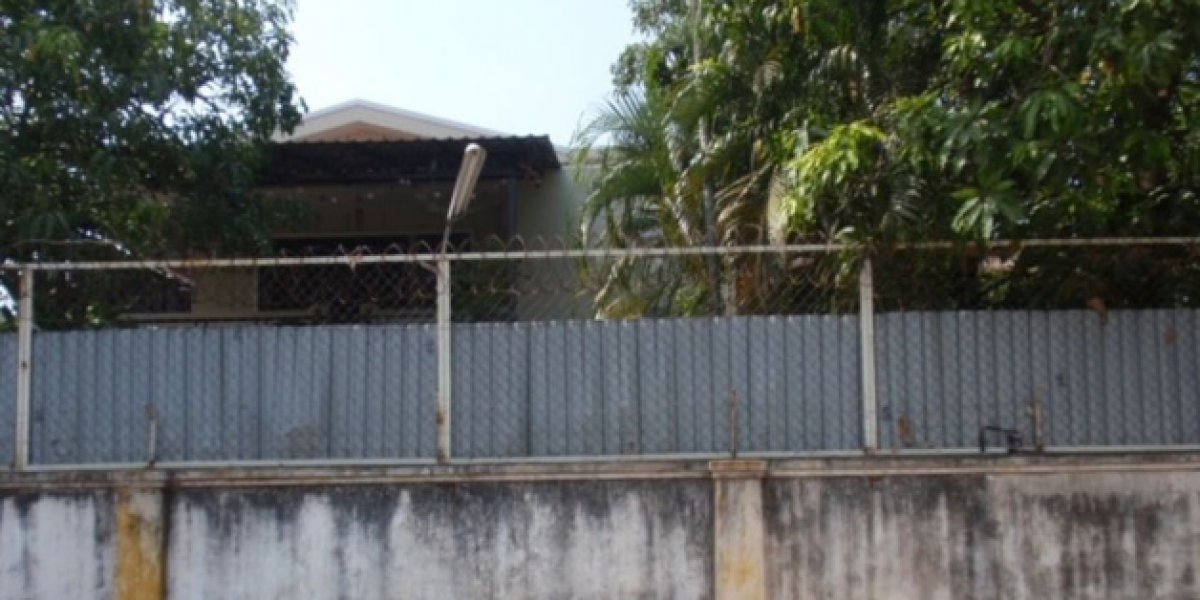Cambodia: Resettlement no longer an option for urban refugees
15 September 2010|Taya Hunt, Legal Officer JRS Thailand

Phnom Penh, September 15, 2010 — The urban refugee population in Cambodia comprises people from all corners of the world. Iran, Iraq, Afghanistan, Burma, Sudan, China and Vietnam are just a few countries from which refugees living in Phnom Penh originate. Porous borders and the fact that Cambodia is a signatory to the 1951 Refugee Convention are the standard reasons refugees give for seeking asylum in Cambodia.
The legal framework in Cambodia affords basic protection to urban refugees. Cambodia however presents a number of its own unique challenges for this population.
Firstly, institutions of government are relatively weak and accordingly there are considerable gaps in the implementation of the rule of law. This challenge touches most departments and government agencies, including the department of immigration and the refugee office.
Secondly, the social and political context in which refugee status determination occurs and refugees live is in continual flux.
And thirdly, Cambodia has an uneven history of providing protection to urban refugees, and this came to international attention in December last year when 20 Uighur asylum seekers were forcibly returned to China from Cambodia.
JRS has been working in Phnom Penh for close to 15 years providing direct assistance to refugees. The office provides, usually on referral by the Cambodian Refugee Office or the United Nations High Commissioner for Refugees (UNHCR) but also to walk-ins, individual legal representation, as well as emergency and other humanitarian assistance.
Most refugees in Cambodia do not see living in Cambodia as a long-term solution for themselves or their families. Many wish to be resettled to countries such as the United States, Canada or Australia. They quickly learn that this is increasingly difficult.
Of the many refugees who apply to UNHCR, only a very small number are nominated to be resettled in other countries. UNHCR’s reasoning is that, as a signatory to the Refugee Convention, with its own domestic refugee law, Cambodia has adequate legal frameworks to provide sufficient protection to urban refugees.
With this in mind, JRS is now focusing on meeting the long-term needs of refugees. For example JRS is facilitating small training workshops enabling women to gain skills which will help them to find employment in Phnom Penh.
The question, however, remains: are refugees able to become self-sufficient in Cambodia?
Cambodia is one of the poorest countries in the Asia Pacific region. Ranked 137th on the Human Development Index, sitting between the Republic of Congo and Burma, Cambodia is barely able to provide for its own citizens. If daily life for the average Cambodian is difficult, then for a refugee in this context it is incredibly hard.
Mohammed faces the challenge of caring for his deteriorating mental health. Having left his family in his home country Mohammed tackles alone the daily battle of keeping depression and anxiety at bay. This is especially difficult as Mohammed does not work, leaving him bored and unproductive: with time for his worries to compound.
Without any money or employment prospects, Mohammed lives day-to-day on the small subsistence allowance provided by UNHCR. How Mohammed could become financially independent from this assistance is difficult to conceive. Due to the lack of state social assistance, most poor Cambodian families rely on moneylenders and enter into private debt agreements accessed through social networks. In Cambodia, local knowledge and social connections are important to ensure fairer terms, refugees like Mohammed possess neither and this marginalisation renders him and others reliant on UNHCR and JRS for social assistance.
Whether refugees can become self-sufficient in Cambodia remains to be seen, meanwhile a more pressing concern for refugees in Cambodia is their safety.
Given the uneven protection Cambodia historically has afforded refugees, it is difficult to perceive merit in the argument that the protection needs of refugees can be guaranteed by the Cambodian Government.
In 2002, two Falun Gung practitioners were forcibly returned to China from Cambodia, individuals with outstanding decisions have been refouled from Cambodia to Vietnam and in December 2009, 20 Uighur asylum seekers registered with both the Cambodian Government and UNHCR were forcibly returned to China.
The lesson Cambodia teaches is that in the absence of political will, legal framework does not guarantee protection. Recent history has demonstrated time again, that in Cambodia, obligations towards refugees accorded by the Convention and their own domestic refugee law are considered subsidiary to geo-political interests.
While the present political reality may indicate that refugees from certain countries of origin are safe in Cambodia, the geo-political context is in a constant state of change: those safe from refoulement today, may not be safe tomorrow.
Until UNHCR can demonstrate that Cambodia meets the basic protection needs of refugees, refugees should continue to be nominated for resettlement to third countries.


